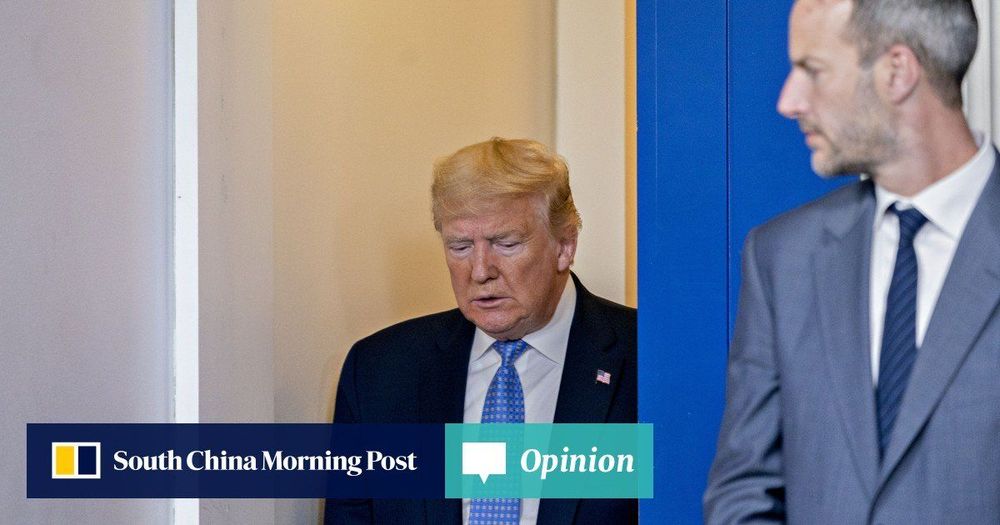Patrick Maletinsky is recognized worldwide as an expert in the field of quantum sensors. He explains why he sees significant economic and scientific potential in quantum sensing already in the near-term.




U.S. Treasury Secretary Steven Mnuchin said he supports direct payments of $1,000 per adult and $500 per child to Americans within three weeks if Congress backs the plan.
“The president is determined that we are going to support” those affected, Mnuchin said in a Fox Business interview Thursday morning.
Cash handouts to all American households are gaining support in Congress as the best way to shore up an economy brought to a near-standstill by the coronavirus response.

Exploiting the pandemic for geopolitical gain.
A few good things will come out of the pandemic. A Democrat may well be the next US president and end the trade war with China, which will be in a better position to bargain, having had a lead in tackling the virus and a head start in economic recovery.

WASHINGTON – SBA Administrator Jovita Carranza issued the following statement today in response to the President’s address to the nation:
“The President took bold, decisive action to make our 30 million small businesses more resilient to Coronavirus-related economic disruptions. Small businesses are vital economic engines in every community and state, and they have helped make our economy the strongest in the world. Our Agency will work directly with state Governors to provide targeted, low-interest disaster recovery loans to small businesses that have been severely impacted by the situation. Additionally, the SBA continues to assist small businesses with counseling and navigating their own preparedness plans through our network of 68 District Offices and numerous Resource Partners located around the country. The SBA will continue to provide every small business with the most effective and customer-focused response possible during these times of uncertainty.”
SBA’s Economic Injury Disaster Loans offer up to $2 million in assistance for a small business. These loans can provide vital economic support to small businesses to help overcome the temporary loss of revenue they are experiencing.

Entrepreneur and former presidential candidate Andrew Yang is not being shy about his belief that the impact of the coronavirus outbreak makes the case for his trademark proposal of giving Americans cash so they can have an economic boost.
Yang is now calling on lawmakers to do just that to help people navigate their way through the pandemic that has resulted in governments ordering schools and many businesses to close.


Hong Kong’s government announced in late February that it would be giving every resident over the age of 18 a cash payout of 10,000 Hong Kong dollars, part of a package of measures aimed at reducing the financial blow to the territory from the COVID-19 outbreak and months of anti-government protests. At the time, the city’s Financial Secretary Paul Chan told CNBC the move could boost Hong Kong’s economy by around 1%.
The U.S. should follow Hong Kong’s lead and give a cash handout to its citizens amid the coronavirus pandemic, a strategist told CNBC Friday.
“This is not a financial crisis,” Andrew Freris, CEO of Ecognosis Advisory, told CNBC’s “Capital Connection.” “It is a crisis about the real economy.”
He noted that in 2008, central banks used stimulus to respond to the collapse of the U.S. mortgage market — but he said nothing of the kind was happening right now.

The Federal Reserve swept into action on Sunday in a new bid to save the U.S. economy from the fallout of the coronavirus, cutting its benchmark interest rate by a full percentage point to near zero and promising to boost its bond holdings by at least $700 billion.
The central bank also announced several other actions, including letting banks borrow from the discount window for as long as 90 days and reducing reserve requirement ratios to zero percent. In addition, the Fed united with five other central banks to ensure dollars are available around the world via swap lines.
Fed Chairman Jerome Powell will hold a press conference at 6:30 p.m. Washington time to discuss the actions.

Coronavirus’s economic danger is exponentially greater than its health risks to the public. If the virus does directly affect your life, it is most likely to be through stopping you going to work, forcing your employer to make you redundant, or bankrupting your business.
The trillions of dollars wiped from financial markets this week will be just the beginning, if our governments do not step in. And if President Trump continues to stumble in his handling of the situation, it may well affect his chances of re-election. Joe Biden in particular has identified Covid-19 as a weakness for Trump, promising “steady, reassuring” leadership during America’s hour of need.

© Provided by The Independent Worldwide, Covid-19 has killed 4,389 with 31 US deaths as of today. But it will economically cripple millions, especially since the epidemic has formed a perfect storm with stock market crashes, an oil war between Russia and Saudi Arabia, and the spilling over of an actual war in Syria into another potential migrant crisis.